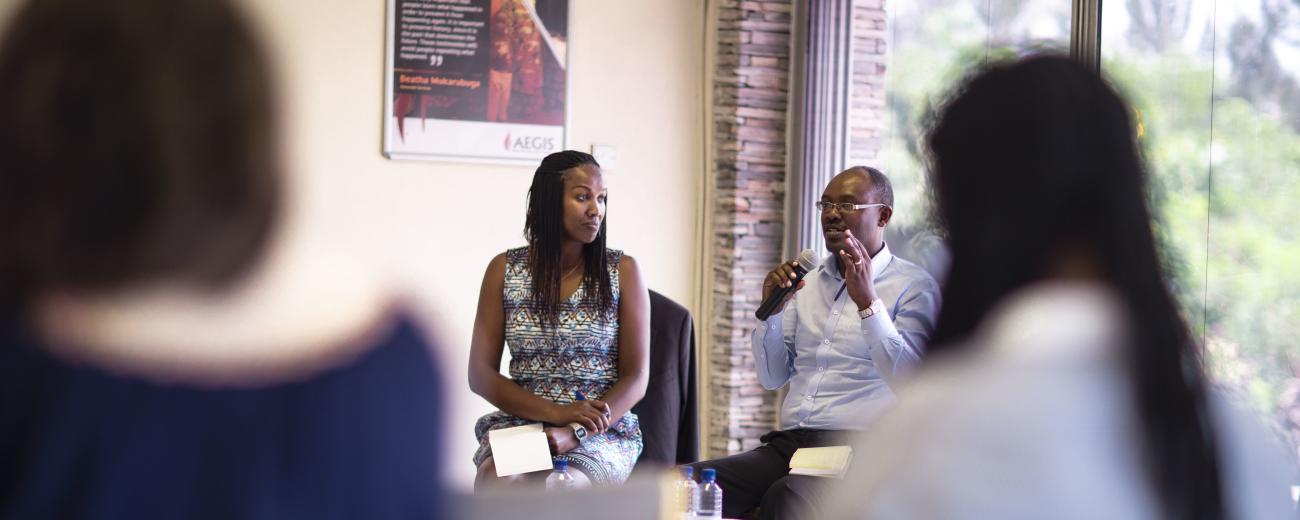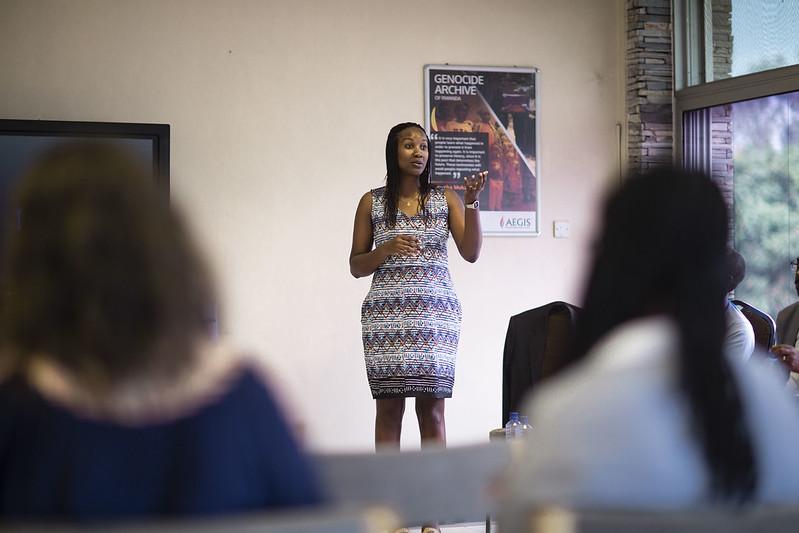Research programme supporting Rwandan scholars marks 10 years


A research programme co-founded at SOAS University of London to address the significant gap in Rwandan scholars’ work in leading journals marks 10-years of progress and impact this year.
The Research, Policy and Higher Education (RPHE) programme was established by Phil Clark, Professor of International Politics at SOAS University of London, in 2014 along with Rwandan and international colleagues, through the Aegis Trust in Kigali.
The programme provides research funding, training and peer support to Rwandan researchers, with the aim of enabling more scholarship from Rwanda to gain a global platform, challenge existing structures and directly influence policy, particularly in relation to post-conflict reconciliation.
These researchers have brought fresh perspectives and made important findings that are influencing both academic and policy responses to post-genocide challenges.
The founders of the programme saw that studies on Rwanda have until recently been conducted almost entirely by Western scholars. Between 1994 and 2019 a total of 398 articles were published on Rwanda in 12 leading journals, but only 13 articles – a mere 3.3% – were by Rwandan authors or co-authors.
To date, the RPHE has worked with 50 Rwandan researchers. The cohort has produced 35 working papers and policy briefs and 24 peer-reviewed journal articles and book chapters. This includes the first ever article by a Rwandan author, Assumpta Mugiraneza, in African Affairs. All of these publications are in the Genocide Research Hub.
Some examples of Rwandan researchers influencing policy include work by Munyurangabo Benda, a philosopher of religion at the Queen’s Foundation, an ecumenical college in Birmingham, who helped to inform a Rwandan government peace-building project after investigating feelings of guilt among Hutu perpetrators.
Research by Sylvestre Nzahabwanayo at the University of Rwanda on the itorero civic education programme – leadership and cultural training camps across Rwanda – led to working with the Ministry of Education and Ministry of National Unity and Civic Engagement to revise the itorero curriculum. Additionally, joint RPHE research on Rwanda's peace education landscape led to further advisory work with the same two ministries to revise the national primary and secondary school curricula on peace education, which is a cross-cutting theme taught at all school levels.
A study on the Batwa minority group by Richard Ntakirutimana, co-founder and executive director of African Initiative for Mankind Progress Organization (AIMPO), led to a range of closed policy discussions with Rwandan parliamentarians about the plight of marginalised groups. In 2018, under the leadership of Felix Ndahinda and Sandra Shenge, the RPHE hosted a two-day conference in London, featuring an all-Rwandan speaker lineup.
Professor Clark, the inaugural director and now a senior advisor to the programme, said: “This month marks 30 years since the start of the 1994 genocide against the Tutsi. Looking back at 10 years of the RPHE programme, we have seen the significant impact the work of Rwandan researchers has had on the scholarship on Rwanda.
"These researchers have brought fresh perspectives and made important findings that are influencing both academic and policy responses to post-genocide challenges.”
The RPHE was funded by the Foreign and Commonwealth Development Office and the Swedish International Development Cooperation Agency.
Photo credits: The Aegis Trust



